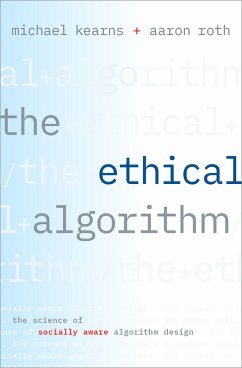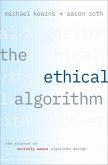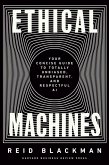Over the course of a generation, algorithms have gone from mathematical abstractions to powerful mediators of daily life. Algorithms have made our lives more efficient, more entertaining, and, sometimes, better informed. At the same time, complex algorithms are increasingly violating the basic rights of individual citizens. Allegedly anonymized datasets routinely leak our most sensitive personal information; statistical models for everything from mortgages to college admissions reflect racial and gender bias. Meanwhile, users manipulate algorithms to "game" search engines, spam filters, online reviewing services, and navigation apps. Understanding and improving the science behind the algorithms that run our lives is rapidly becoming one of the most pressing issues of this century. Traditional fixes, such as laws, regulations and watchdog groups, have proven woefully inadequate. Reporting from the cutting edge of scientific research,
The Ethical Algorithm offers a new approach: a set of principled solutions based on the emerging and exciting science of socially aware algorithm design. Michael Kearns and Aaron Roth explain how we can better embed human principles into machine code - without halting the advance of data-driven scientific exploration. Weaving together innovative research with stories of citizens, scientists, and activists on the front lines,
The Ethical Algorithm offers a compelling vision for a future, one in which we can better protect humans from the unintended impacts of algorithms while continuing to inspire wondrous advances in technology.
Dieser Download kann aus rechtlichen Gründen nur mit Rechnungsadresse in A, B, BG, CY, CZ, D, DK, EW, E, FIN, F, GR, HR, H, IRL, I, LT, L, LR, M, NL, PL, P, R, S, SLO, SK ausgeliefert werden.
Hinweis: Dieser Artikel kann nur an eine deutsche Lieferadresse ausgeliefert werden.









